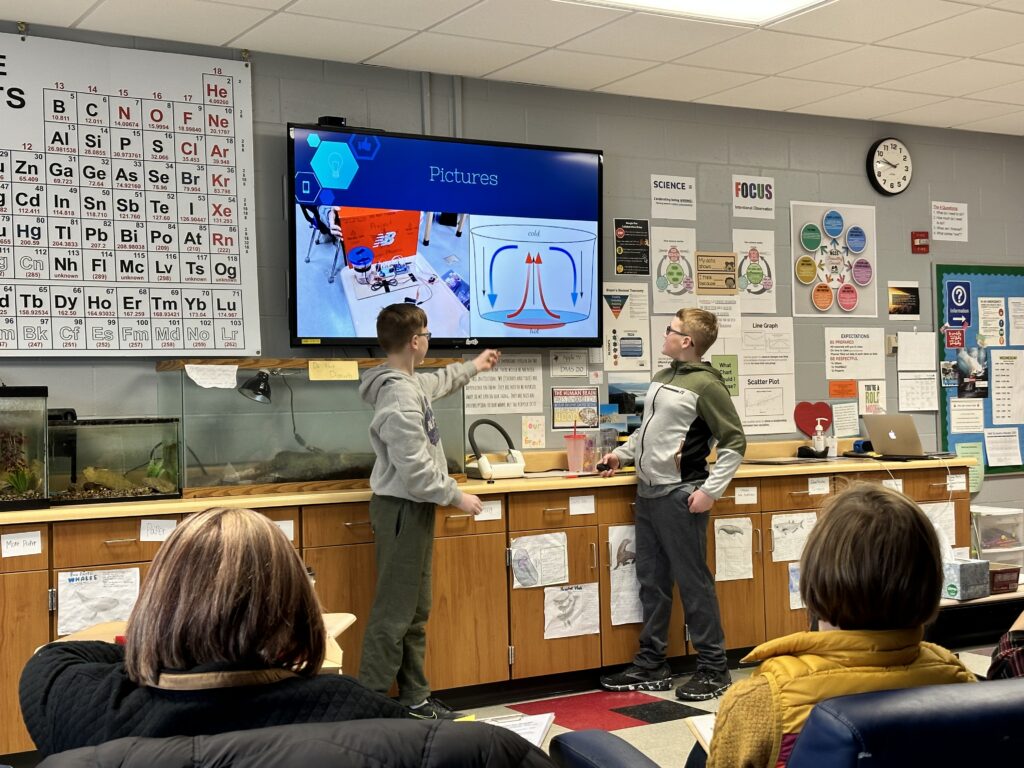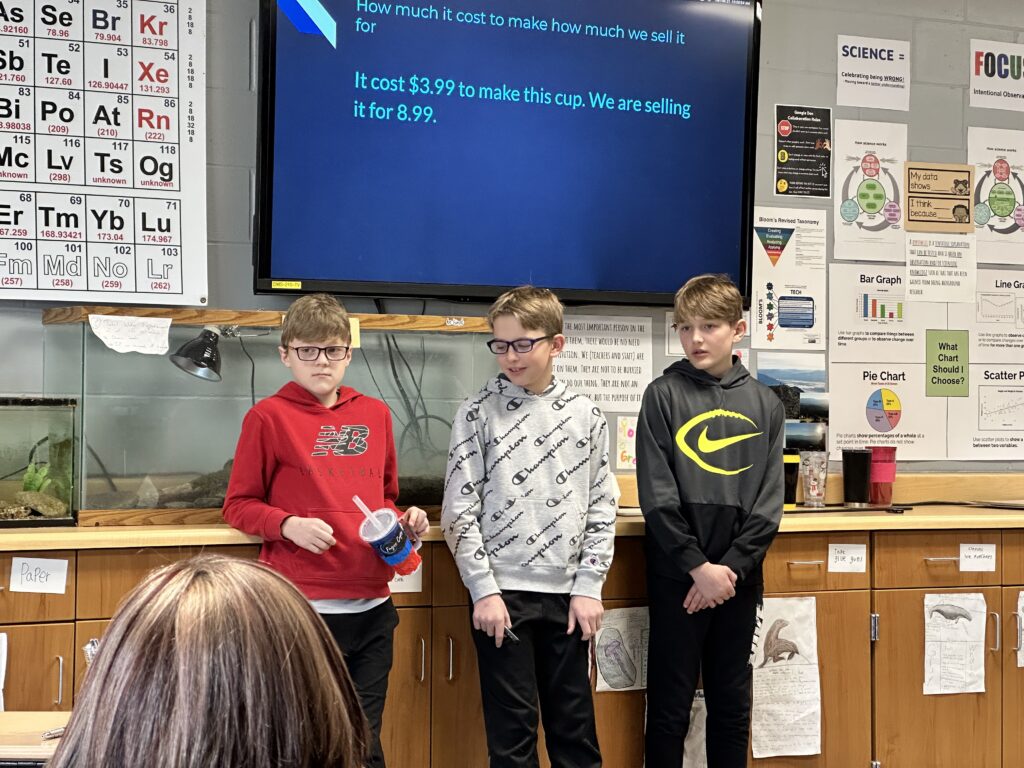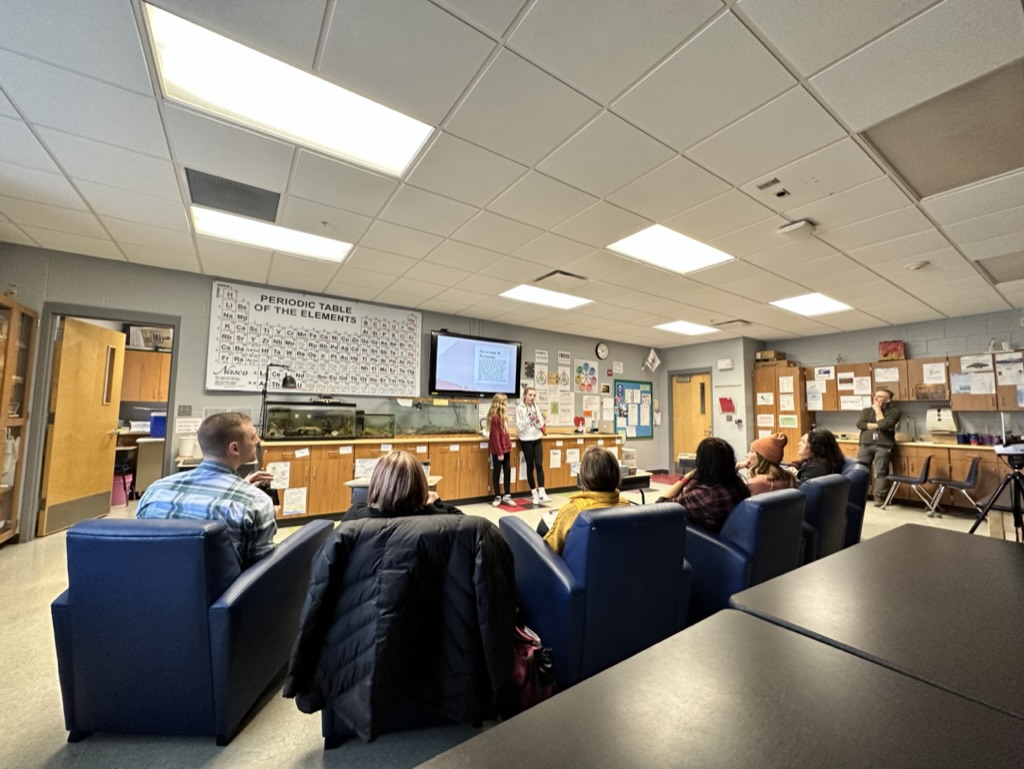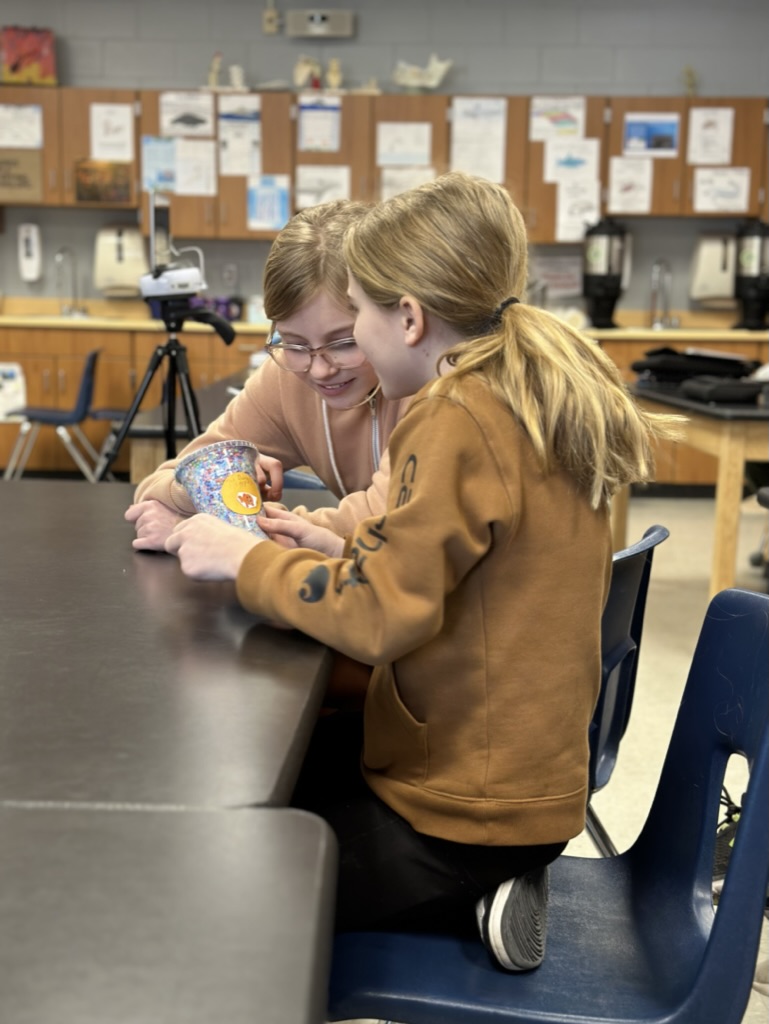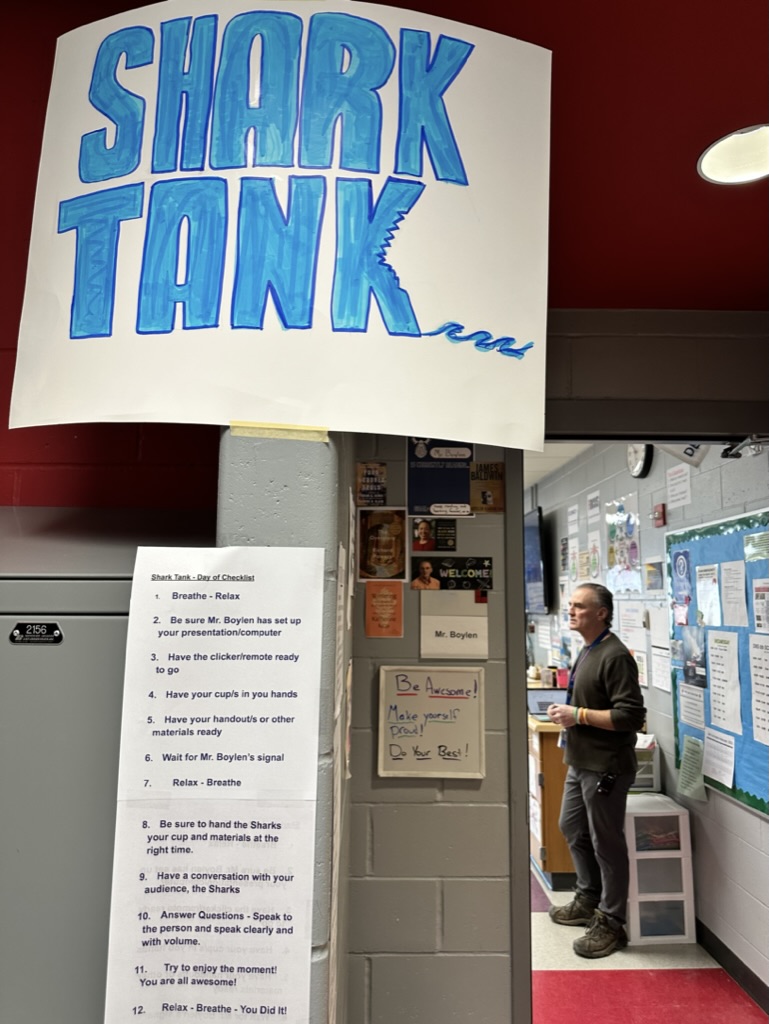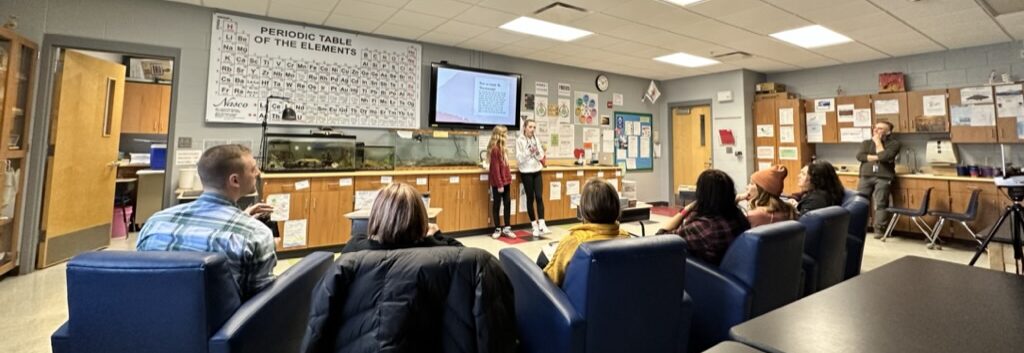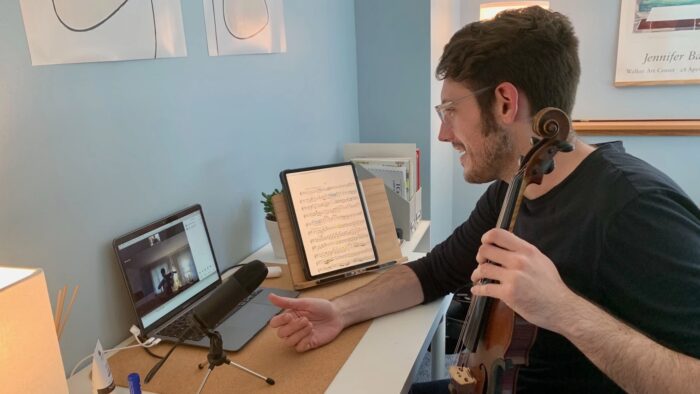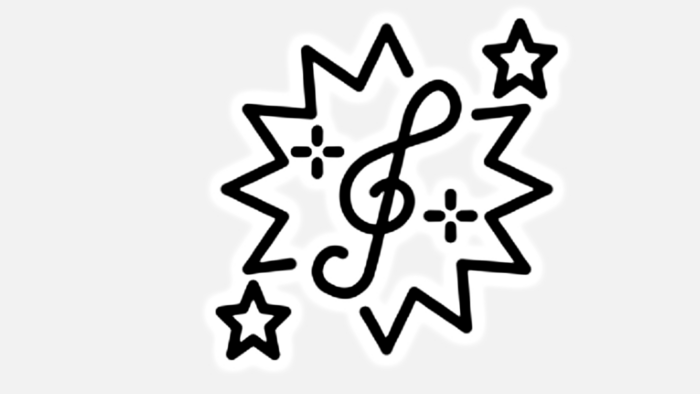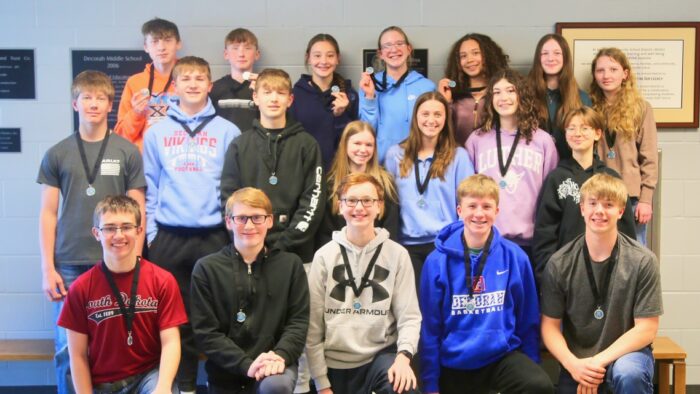Shark Tank Comes to Decorah Middle School Science Classes
After guiding his sixth-grade students to explore thermal energy and the transfer of energy on the molecular level, Decorah Middle School science teacher Scott Boylen created an engaging way for them to display their learning: they would create a cup system designed to keep liquids cold or warm and present their prototypes to a panel of adults–Shark Tank style.
The benefits for students engaged in this project are numerous:
- Students authentically communicated their learning and why it mattered in real life.
- They gained genuine experience in personal and professional communication. They were involved in real/live discussions about data, using science terms and vocabulary, listening and responding in real time to questions, and being very genuine in the process. They were engaged actively in communicating like real-life scientists.
- Students learned about the real-world impacts of scientific concepts, especially thermal energy transfer. Many of them developed and communicated a deep level of understanding of the science involved in working to slow the transfer of energy between molecules in cup systems designed to keep liquids warm or cold.
- They showed a great deal of creativity and design by using engineering principles and their imaginations.
- Students overcame any fears they had about public speaking and presented to a group of adults, including parents and their peers, in a semiformal setting. They created and presented information in ways that were engaging and informative.
DMS student Charly Courtney shared, “I thought that the Shark Tank activity was super fun and was a great way to learn about thermal energy. When we started creating our cups, we had to think about why this would make our cup better, or why is this keeping it cold/hot?”
“The sharks got to ask questions when we finished, which I thought was cool because we got to work on social skills, speaking skills, what we were learning in science to answer the questions, and why that answer was right and support it with evidence,” Courtney added. “In all I thought it was a really cool way to test us and was super fun to do and create the cups.”
“My expectation for the ‘Shark’ part of this project was to not be too intimidating,” Boylen remarked, “but to ask the students to do some level of explaining and thinking around the science behind what they had done.”
The presentations revealed the students’ understanding of the concepts Boylen taught: the students were well prepared for the questions the panel asked, demonstrating their knowledge of science concepts in their answers.
Boylen added, “I was pleased that the ‘Sharks’ asked questions that offered my students the chance to do some thinking on their feet and to learn from that experience. They also learned some self-confidence and that they are awesome curious beings with a world full of wonders in front of them.”
